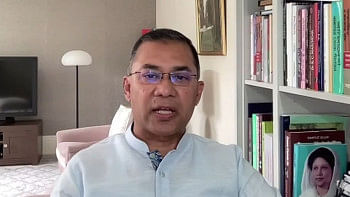Opinion: Checkposts not enough to stop terrorism

The Wednesday attack on a police checkpost in Ashulia that left a policeman dead and another one critically injured shows that setting up road side checkposts are not enough to foil missions of terrorists blinded by ideological corruption.
The nature of attack also shows that the terrorists have become more aggressive – especially considering that the police victims were on duty and armed.
It also shows that in order to spread fear among the public, the terrorists are picking up unpredictable targets, locations and time.
First, they killed two foreigners separately in two regions – Dhaka and Rangpur, and then they bombed a Shia community gathering, and then they attacked cops in the capital. Side by side, terrorists have separately killed five writers and publishers and several religious leaders and have announced to kill 'enemies of Islam', who could be anyone as it is the terrorists who judge and execute people.
The recent spate of terror began from late September – just a few days after the Australian cricket team declined to visit Bangladesh on security grounds. Australia had intelligence that there would be some terrorist attacks on foreigners and other targets. Later, according to a report of The New York Times, we learnt that the USA also shared similar messages with the government in late September, just a few days before the murder of the Italian citizen in Dhaka. It seems the government did not take those seriously.
We later saw that several other countries were also informed about possible spate of terrorist activities and these countries had issued travel alerts for their citizens in Bangladesh.
Sadly, while foreign nations have such information, our intelligence seemed to be in dark. Why?
A probable answer to that question is how the government reacted to the murders of the foreign nationals, bombing on the Shia community, slaying of the freethinkers and even the police. The government wasted no time in faulting the BNP-Jamaat for the killings. When the government high ups bring up such conspiracy theories, how can our intelligence agencies work independently and professionally?
Threats of militancy are nothing new in Bangladesh. It crept into Bangladesh in the '90s and attacked anything that stood for indigenous culture, secularism and freethinking using the name of Islam.
Following the fall of the Jama'atul Mujahedin Bangladesh (JMB) by 2008, the government had formulated its plan to uproot terrorism for good by not only strengthening the police forces, but also by fighting terrorism intellectually by mobilising religious leaders at mosques and other places. The intellectual bid fell flat by 2010 as the government could not motivate religious leaders for its cause. The government could have then asked the parliamentarians to help motivate these people. But it seems the government just gave up.
All the while the government was more interested to use the cops politically to bash its BNP-Jamaat rivals.
In the wake of the recent terrorist activities, the government beefed up the security by installing checkposts. But it did not prepare or train cops to deal with sudden terrorist attacks. Now we have seen the consequence. These checkposts are good for harassing innocent people. Terrorists can avoid checkposts if they want as they follow detailed plans.
The situation demands the government asks itself why our cops and intelligence agencies are failing to stop terrorism. They need to be more professional and competent. And that would be possible only through depoliticisation of these institutions. Fighting terrorism is a tricky battle, which must be fought both intellectually and professionally – not by hatching conspiracy theories.

 For all latest news, follow The Daily Star's Google News channel.
For all latest news, follow The Daily Star's Google News channel. 



Comments